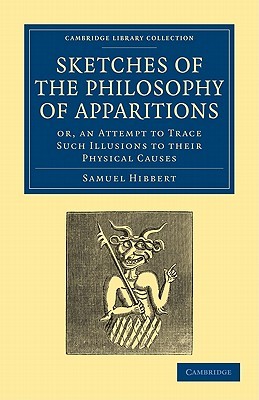
- We will send in 10–14 business days.
- Author: Samuel Hibbert
- Publisher: Cambridge University Press
- ISBN-10: 1108027725
- ISBN-13: 9781108027724
- Format: 14 x 21.6 x 2.8 cm, minkšti viršeliai
- Language: English
- SAVE -10% with code: EXTRA
Reviews
Description
In this book of 1825, Samuel Hibbert (1782-1848) attempts to uncover the physical or physiological causes which might account for claims of seeing ghosts and other apparitions. Hibbert trained as a doctor, and uses anecdotal and case-study evidence to show that external physical circumstances - such as the use of stimulants, brain inflammation, hallucination during fever, or alcohol withdrawal - are most likely to be the causes of apparent sightings of supernatural phenomena. He explores the power of suggestion, whether derived from superstitions, folk tales or biblical imagery, on the imagination of the impressionable. Using the idea that the train of thought can be stimulated or depressed, and that different levels of semi-consciousness can admit of different levels of contemplation and concentration, Hibbert hypothesises that for each apparition or ghostly spectre there is a rational explanation.
EXTRA 10 % discount with code: EXTRA
The promotion ends in 21d.15:44:47
The discount code is valid when purchasing from 10 €. Discounts do not stack.
- Author: Samuel Hibbert
- Publisher: Cambridge University Press
- ISBN-10: 1108027725
- ISBN-13: 9781108027724
- Format: 14 x 21.6 x 2.8 cm, minkšti viršeliai
- Language: English English
In this book of 1825, Samuel Hibbert (1782-1848) attempts to uncover the physical or physiological causes which might account for claims of seeing ghosts and other apparitions. Hibbert trained as a doctor, and uses anecdotal and case-study evidence to show that external physical circumstances - such as the use of stimulants, brain inflammation, hallucination during fever, or alcohol withdrawal - are most likely to be the causes of apparent sightings of supernatural phenomena. He explores the power of suggestion, whether derived from superstitions, folk tales or biblical imagery, on the imagination of the impressionable. Using the idea that the train of thought can be stimulated or depressed, and that different levels of semi-consciousness can admit of different levels of contemplation and concentration, Hibbert hypothesises that for each apparition or ghostly spectre there is a rational explanation.


Reviews